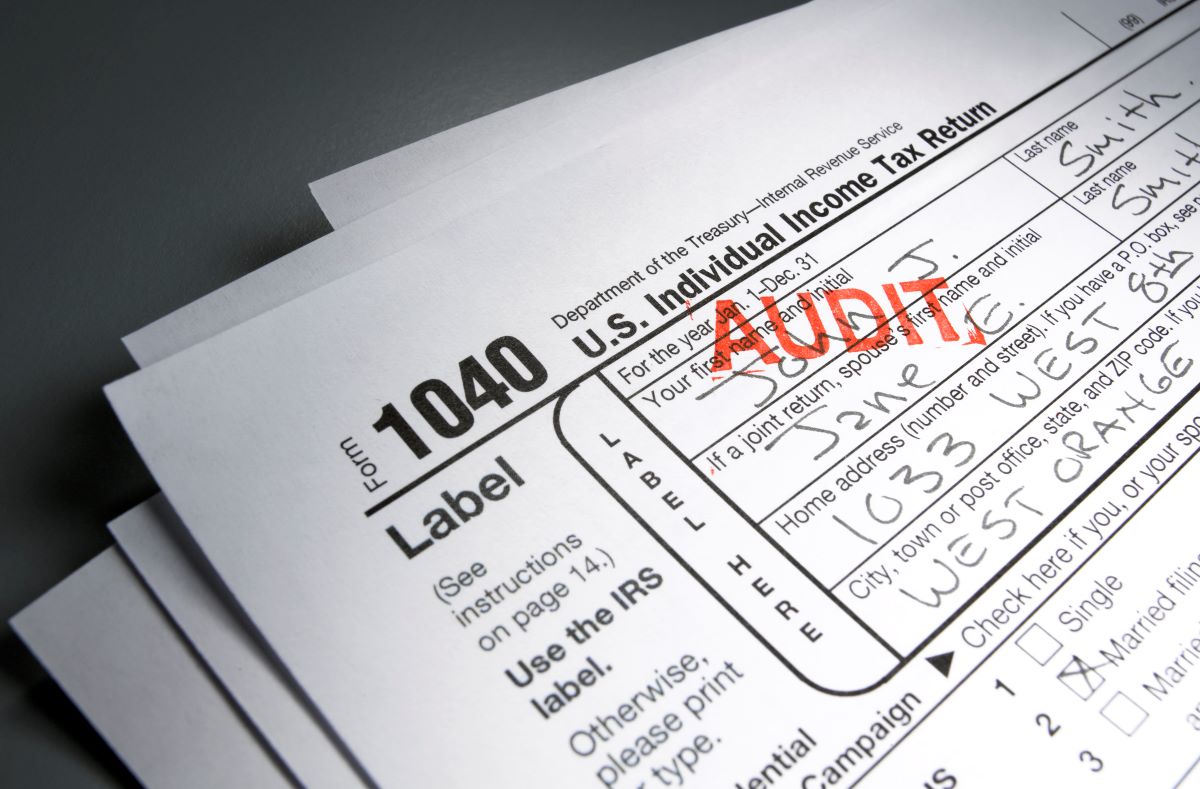

Finance
What Does A Consumer Finance Auditor Do
Modified: December 30, 2023
Discover the role and responsibilities of a consumer finance auditor, including their role in ensuring financial compliance and accuracy. Explore how finance auditors contribute to a company's financial integrity.
(Many of the links in this article redirect to a specific reviewed product. Your purchase of these products through affiliate links helps to generate commission for LiveWell, at no extra cost. Learn more)
Table of Contents
- Introduction
- Role of a Consumer Finance Auditor
- Responsibilities of a Consumer Finance Auditor
- Skills Required for Consumer Finance Auditing
- Steps Involved in Consumer Finance Auditing Process
- Importance of Consumer Finance Auditing
- Challenges Faced by Consumer Finance Auditors
- Tips for Success as a Consumer Finance Auditor
- Conclusion
Introduction
A consumer finance auditor plays a crucial role in ensuring the financial integrity and compliance of companies operating in the consumer finance industry. As the financial landscape becomes more complex, companies need to have accurate and reliable financial records to make informed decisions and maintain the trust of their clients.
In this article, we will explore the role of a consumer finance auditor and shed light on the responsibilities, skills, and challenges they face in their profession. We will also discuss the importance of consumer finance auditing and provide tips for success in this field.
Consumer finance auditors are professionals who specialize in examining and evaluating financial records to ensure compliance with relevant laws, regulations, and industry standards. They work closely with businesses that offer consumer financial products and services such as loans, credit cards, mortgages, and insurance.
Consumer finance auditors are responsible for assessing the accuracy, completeness, and consistency of financial data provided by companies. They review various financial documents including balance sheets, income statements, cash flow statements, and transaction records to identify any discrepancies, errors, or fraudulent activities.
The primary goal of a consumer finance auditor is to ensure that companies are following proper accounting procedures, maintaining appropriate internal controls, and adhering to all relevant regulatory guidelines. By conducting thorough audits, they help businesses identify and address any financial risks, strengthen operational processes, and protect the interests of consumers.
To be effective in their role, consumer finance auditors need to possess a solid understanding of finance and accounting principles. They must stay updated with the latest regulatory requirements and industry best practices. Additionally, they should have excellent analytical skills, attention to detail, and the ability to communicate complex financial information to both financial and non-financial stakeholders.
Role of a Consumer Finance Auditor
The role of a consumer finance auditor is crucial in maintaining the financial integrity and compliance of companies operating in the consumer finance industry. They play a vital role in providing assurance to both the company management and external stakeholders that the financial statements are accurate and reliable.
Consumer finance auditors are responsible for evaluating financial records, processes, and systems to identify any discrepancies, errors, or fraudulent activities. They analyze financial data to ensure that it complies with relevant laws, regulations, and industry standards. They also assess the effectiveness of internal controls and risk management frameworks to mitigate financial risks.
Additionally, consumer finance auditors play a key role in improving the overall financial performance of companies. They provide recommendations and guidance to management on how to enhance financial processes, reduce operating costs, and optimize resource allocation. By identifying areas of improvement and implementing best practices, auditors help companies operate more efficiently and effectively.
One of the core responsibilities of consumer finance auditors is to conduct financial audits. They review various financial documents such as balance sheets, income statements, and cash flow statements to ensure accuracy, completeness, and consistency. They also verify the authenticity of financial transactions and investigate any suspicious activities.
Consumer finance auditors also assess the adequacy and effectiveness of internal controls. They evaluate the company’s control environment, which includes policies, procedures, and systems that ensure the reliability and integrity of financial reporting. They identify weaknesses in controls and provide recommendations for improvement to minimize the risk of fraud, errors, and non-compliance.
Another important aspect of a consumer finance auditor’s role is to stay updated with the latest regulatory requirements and industry best practices. They need to have a thorough understanding of financial regulations, such as the Consumer Financial Protection Bureau (CFPB) guidelines, and ensure that companies are compliant with these regulations. They also monitor changes in accounting standards and tax regulations to ensure accurate financial reporting.
Responsibilities of a Consumer Finance Auditor
A consumer finance auditor has a range of responsibilities to ensure the financial integrity and compliance of companies in the consumer finance industry. They perform thorough analysis and evaluation of financial records, processes, and systems to identify any discrepancies, errors, or fraudulent activities. Here are some of the key responsibilities of a consumer finance auditor:
- Conducting audits: One of the primary responsibilities of a consumer finance auditor is to conduct financial audits. They review and analyze financial documents such as balance sheets, income statements, cash flow statements, and transaction records to ensure accuracy, completeness, and reliability. They also verify the authenticity of financial transactions and investigate any suspicious activities.
- Evaluating internal controls: Consumer finance auditors assess the effectiveness of internal controls within an organization. They evaluate the company’s control environment, including policies, procedures, and systems that ensure reliable financial reporting. They identify any weaknesses in controls and provide recommendations for improvement to minimize the risk of fraud, errors, and non-compliance.
- Ensuring compliance: Consumer finance auditors play a crucial role in ensuring that companies comply with relevant laws, regulations, and industry standards. They stay updated with the latest regulatory requirements, such as those set by the Consumer Financial Protection Bureau (CFPB), and ensure that companies are compliant. They also monitor changes in accounting standards and tax regulations to ensure accurate financial reporting.
- Identifying risks and fraud: Consumer finance auditors are responsible for identifying and assessing financial risks within an organization. They analyze financial records and processes to identify any potential risks that could impact the company’s financial integrity. They also investigate any suspected fraudulent activities and recommend measures to mitigate such risks.
- Providing recommendations and guidance: Based on their audit findings, consumer finance auditors provide recommendations and guidance to management on how to improve financial processes, reduce operating costs, and optimize resource allocation. They help companies enhance their financial performance by implementing best practices and addressing any areas of improvement.
Overall, consumer finance auditors play a critical role in ensuring the accuracy, reliability, and compliance of financial records within the consumer finance industry. Their responsibilities help companies maintain stakeholder trust, minimize financial risks, and operate efficiently and effectively.
Skills Required for Consumer Finance Auditing
Consumer finance auditing requires a unique set of skills to effectively evaluate financial records, analyze risks, and ensure compliance. Here are some essential skills for a consumer finance auditor:
- Financial acumen: A strong understanding of finance and accounting principles is crucial for a consumer finance auditor. They need to be familiar with financial statements, ratios, and performance indicators to assess the financial health of a company. Additionally, they should have knowledge of relevant laws, regulations, and industry standards.
- Analytical skills: Consumer finance auditors must possess excellent analytical skills to evaluate complex financial data. They need to be able to identify patterns, trends, and anomalies that may indicate risks or fraudulent activities. They should also be able to interpret financial information and draw meaningful insights from it.
- Attention to detail: The ability to pay close attention to detail is crucial for consumer finance auditors. They need to meticulously review financial records and documents to ensure accuracy and compliance. They should be able to spot errors, discrepancies, and inconsistencies that may affect the reliability of financial information.
- Communication skills: Consumer finance auditors need strong communication skills to effectively convey their findings and recommendations to both financial and non-financial stakeholders. They should be able to explain complex financial concepts in a clear and concise manner. They also need to collaborate and coordinate with teams across the organization.
- Ethical conduct: As auditors, integrity and ethical conduct are of utmost importance. They must maintain objectivity, independence, and confidentiality throughout the auditing process. They should adhere to professional standards and ethical guidelines established by auditing bodies and regulatory organizations.
- Problem-solving abilities: Consumer finance auditors often encounter complex financial issues and challenges. They need to have strong problem-solving abilities to identify the root causes of financial problems and recommend effective solutions. They should be able to think critically and make informed decisions based on their analysis.
- Technology proficiency: In today’s digital age, consumer finance auditors need to be proficient in using auditing software and technology tools. They should be comfortable with data analysis and data visualization tools to efficiently analyze large volumes of financial data. Knowledge of data analytics and data mining techniques is also beneficial.
A consumer finance auditor with a combination of these skills will be well-equipped to navigate the complexities of financial auditing in the consumer finance industry. Continuous learning and staying updated with industry trends and advancements are also essential to excel in this field.
Steps Involved in Consumer Finance Auditing Process
The consumer finance auditing process requires a systematic approach to ensure thorough evaluation and examination of financial records. While the specific steps may vary depending on the organization and the scope of the audit, here are the general steps involved in consumer finance auditing:
- Planning: The first step in the auditing process is to plan the audit. This involves understanding the scope of the audit, defining objectives, and developing an audit plan. The auditor identifies key areas to focus on, determines the audit timeline, and allocates resources for the audit.
- Data Collection: The auditor collects relevant financial data from the company under audit. This includes financial statements, bank statements, transaction records, invoices, and any other supporting documentation. The auditor verifies the accuracy and completeness of the data collected.
- Risk Assessment: The auditor evaluates the risks associated with the company’s financial activities. This involves identifying potential risks such as fraud, errors, non-compliance, and financial misstatements. The auditor assesses the effectiveness of internal controls and identifies areas of vulnerability.
- Testing and Analysis: The auditor conducts tests and analyses to validate the accuracy and reliability of the financial data. This may include sample testing, substantive testing, and analytical procedures. The auditor examines financial transactions, reconciles accounts, and performs calculations to ensure compliance with relevant accounting standards and regulations.
- Findings and Documentation: The auditor compiles the audit findings and documents the results. This includes documenting any deficiencies, weaknesses in controls, and instances of non-compliance. The auditor prepares audit reports that outline the findings, recommendations, and any areas that require corrective actions.
- Communication and Reporting: The auditor communicates the audit findings and recommendations to the management of the audited company. This may involve meetings, presentations, or written reports. The auditor provides a clear and concise explanation of the findings, discusses any issues identified, and suggests actions to address them.
- Follow-up and Monitoring: After the audit, the auditor follows up on any corrective actions taken by the company to address the findings. They may perform additional monitoring to ensure that the recommendations are implemented effectively. The auditor may provide ongoing guidance and support to the company in improving their financial processes and controls.
These steps ensure that the consumer finance auditing process is thorough, objective, and results in reliable financial reporting. It provides valuable insights and recommendations to help companies strengthen their financial controls, mitigate risks, and ensure compliance with relevant regulations.
Importance of Consumer Finance Auditing
Consumer finance auditing plays a vital role in ensuring the accuracy, reliability, and compliance of financial records within the consumer finance industry. Here are some key reasons why consumer finance auditing is important:
- Financial Integrity: Consumer finance auditing helps maintain the financial integrity of companies in the industry. By conducting thorough audits, auditors ensure that financial statements and records accurately reflect the financial position and performance of the organization. This builds trust and confidence among stakeholders, including investors, customers, and regulators.
- Compliance with Regulations: Consumer finance companies are subject to numerous laws, regulations, and industry standards. Auditing ensures that these companies comply with these regulations, such as those set by the Consumer Financial Protection Bureau (CFPB). By staying compliant, companies demonstrate their commitment to ethical and responsible financial practices, protecting the interests of both consumers and the industry at large.
- Detection of Fraud and Errors: Consumer finance auditing plays a crucial role in detecting fraud, errors, and financial misstatements. Auditors carefully analyze financial records and processes to identify any irregularities or suspicious activities. This early detection helps mitigate risks and minimize the impact of fraudulent activities, protecting both the company and its customers.
- Operational Efficiency: Auditing provides valuable insights into the operational efficiency of consumer finance companies. By evaluating internal controls and financial processes, auditors can identify areas for improvement. They help companies streamline operations, reduce costs, and optimize resource allocation, leading to improved profitability and overall performance.
- Risk Mitigation: Consumer finance auditors assess financial risks and identify potential vulnerabilities within an organization. By evaluating internal controls, they identify weaknesses and provide recommendations for mitigation. This helps companies proactively address risks, safeguard assets, and prevent financial losses.
- Enhanced Decision-Making: Accurate and reliable financial information is crucial for effective decision-making. Consumer finance auditing ensures the integrity of financial data, enabling management to make informed decisions. It provides a clear picture of the organization’s financial health, facilitating strategic planning, investment decisions, and resource allocation.
Overall, consumer finance auditing is essential for ensuring the financial health, compliance, and operational efficiency of companies in the industry. It helps maintain stakeholder trust, mitigate risks, and promote responsible financial practices, ultimately contributing to the growth and sustainability of the consumer finance sector.
Challenges Faced by Consumer Finance Auditors
Consumer finance auditors face various challenges in their role due to the complex nature of the industry and the regulatory environment they operate in. Here are some common challenges faced by consumer finance auditors:
- Changing Regulatory Landscape: Consumer finance auditors must stay updated with the ever-changing regulatory landscape. New regulations, guidelines, and reporting requirements can significantly impact auditing processes and procedures. Keeping pace with these changes requires continuous learning and adapting to evolving regulatory frameworks.
- Data Management and Analysis: The volume and complexity of financial data in consumer finance auditing can pose challenges for auditors. Gathering and analyzing large amounts of data from various sources require robust data management systems and analytical tools. Ensuring data accuracy, integrity, and security is crucial for effective auditing.
- Emerging Risks: The consumer finance industry is constantly evolving, and new risks emerge as technology advances. Consumer finance auditors need to be vigilant in identifying and understanding these emerging risks. They must have the expertise and adaptability to assess risks associated with new financial products, digital transactions, and emerging technologies.
- Fraud Detection: Consumer finance auditors face the challenge of detecting and preventing fraud within companies. Fraudsters are becoming more sophisticated, utilizing complex techniques to manipulate financial records and mask fraudulent activities. Auditors must stay ahead of these techniques and rely on advanced tools and techniques to effectively detect and combat fraud.
- Data Privacy and Security: Consumer finance auditors deal with sensitive financial information, making data privacy and security essential considerations. Safeguarding customer data and protecting it from unauthorized access is crucial. Auditors must ensure that the companies they audit have robust data protection measures in place and comply with privacy regulations.
- Ethical Dilemmas: Consumer finance auditors may face ethical dilemmas during the auditing process. They must maintain objectivity and independence while fulfilling their obligations. Conflicts of interest, pressures from management, and ethical gray areas can present challenges, requiring auditors to navigate these situations with integrity and professionalism.
- Collaboration with Stakeholders: Consumer finance auditors must work closely with various stakeholders, including management, regulators, and internal audit teams. Effective collaboration, communication, and coordination are necessary to ensure that audit objectives are met. Building and maintaining strong relationships with stakeholders can help address challenges and foster a cooperative audit environment.
Despite the challenges they face, consumer finance auditors play a critical role in maintaining financial integrity, identifying risks, and promoting compliance within the consumer finance industry. Their expertise and dedication contribute to the stability and trustworthiness of the industry as a whole.
Tips for Success as a Consumer Finance Auditor
Becoming a successful consumer finance auditor requires a combination of technical skills, professionalism, and personal qualities. Here are some tips to excel in this field:
- Develop a Strong Foundation: Obtain a solid education in finance, accounting, or a related field to build a strong foundation of knowledge. Acquire relevant certifications such as Certified Internal Auditor (CIA) or Certified Fraud Examiner (CFE) to demonstrate your expertise and enhance your credibility.
- Stay Updated: Keep abreast of the latest industry trends, regulatory changes, and accounting standards affecting the consumer finance industry. Continuous learning and professional development are essential to stay relevant and maintain a competitive edge.
- Enhance Technical Skills: Sharpen your analytical and data management skills in order to effectively analyze complex financial data. Develop proficiency in using auditing software and data analytics tools to streamline auditing processes and increase efficiency.
- Build Strong Communication Skills: Effective communication is key in the role of an auditor. Develop excellent written and verbal communication skills to clearly articulate audit findings, recommendations, and any potential risks to both financial and non-financial stakeholders. The ability to convey complex financial concepts in a clear and concise manner is crucial.
- Cultivate Professionalism: Uphold the highest ethical standards and maintain professional integrity at all times. Display independence, objectivity, and confidentiality in the auditing process. Treat all individuals and organizations impartially and without bias, while adhering to professional codes of conduct.
- Sharpen Analytical and Critical Thinking: Develop strong analytical and critical thinking skills to effectively evaluate financial data and identify risks. Cultivate the ability to think logically, analyze complex situations, and apply critical judgment to make informed decisions and recommendations.
- Attention to Detail: Pay close attention to detail when reviewing financial records and documents. The ability to spot discrepancies, errors, or inconsistencies is crucial to ensure accurate financial reporting and identify potential areas of risk or fraud.
- Embrace Collaboration: Foster positive working relationships with colleagues, management, and other stakeholders. Collaborate effectively to ensure a smooth audit process and unify efforts towards common objectives. The ability to work as part of a team and contribute towards a cooperative audit environment is essential.
- Emphasize Continuous Improvement: Continuously seek opportunities to improve your skills and enhance audit processes. Embrace new technologies, stay informed about industry best practices, and actively seek feedback to identify areas for growth and make necessary adjustments to improve audit procedures.
- Adaptability and Flexibility: Consumer finance auditing requires adaptability and flexibility due to the dynamic nature of the industry. Embrace change, be open to new challenges, and readily adapt to evolving regulations, technologies, and audit methodologies. The ability to quickly grasp new concepts and adjust audit approaches accordingly is invaluable.
By following these tips, aspiring consumer finance auditors can position themselves for success in this dynamic and challenging field. Continuous learning, professionalism, and a commitment to delivering high-quality audits will contribute to a rewarding and fulfilling career.
Conclusion
Consumer finance auditors play a vital role in ensuring the financial integrity, compliance, and operational efficiency of companies in the consumer finance industry. They evaluate financial records, assess risks, and provide recommendations to strengthen financial processes and controls. Their work helps maintain stakeholder trust, mitigate risks, and promote responsible financial practices.
To thrive as a consumer finance auditor, individuals must possess a strong foundation in finance and accounting, continuously update their knowledge, and develop technical skills in data analysis and auditing software. Effective communication, critical thinking, attention to detail, and collaboration are also essential qualities for success in this field.
Consumer finance auditors face various challenges, including a changing regulatory environment, data management complexities, and emerging risks. However, by staying updated, cultivating professionalism, and embracing continuous improvement, auditors can overcome these challenges and deliver valuable insights and recommendations to companies.
In conclusion, consumer finance auditing plays a crucial role in maintaining the financial integrity, compliance, and operational excellence of companies in the consumer finance industry. By ensuring accurate financial reporting, detecting fraud, and identifying areas for improvement, consumer finance auditors contribute to the stability and success of the industry as a whole.














